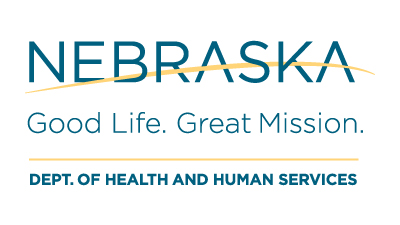![]()

November is nationally known as Alzheimer’s Awareness Month. During this time, the Department of Health and Human Services (DHHS) encourages Nebraskans to heighten their awareness about this common disease and show support to those affected by it in their community.
“Awareness, education, and recognition are key to increasing the diagnosis, understanding, and management of Alzheimer’s disease,” said Tony Green, the Director of the Division of Developmental Disabilities at DHHS. “I urge you to offer support to your neighbors, family members, friends, and community members who may be experiencing a diagnosis or are affected by Alzheimer’s.”
Alzheimer’s is the most common form of dementia, a brain condition that affects the part of the brain controlling thought, memory, and language. According to the Centers for Disease Control and Prevention (CDC), as many as 5.8 million Americans were living with Alzheimer’s in 2020, and this number is projected to nearly triple by 2060.
The best-known risk factor for Alzheimer’s is age, and while those with a family history may be at an increased risk for developing it, it is not guaranteed. Researchers are studying whether mental stimulation, diet, and environment play a role in the presentation of the disease.
What are the warning signs?
- Memory loss that disrupts daily life
- Trouble handling money and paying bills
- Difficulty completing familiar tasks at home or work
- Decreased or poor judgement
- Misplacing things and being unable to retrace steps to find them
- Changes in mood, personality, or behavior
Make an appointment with your healthcare provider if you are experiencing cognitive distress. This is a great first step in determining if the symptoms you are experiencing are caused by Alzheimer’s disease. Early and accurate diagnoses can help you and your family take steps to plan and anticipate what care may be needed in the future.
The science related to Alzheimer’s and its risk factors is quickly evolving. There is growing evidence that people who adopt healthy lifestyle habits can lower their risk.
Here are a few ways to help improve your brain health:
- Do not smoke
- Prevent and manage high blood pressure
- Prevent and manage high cholesterol
- Maintain a healthy weight
- Get enough sleep
- Manage blood sugar
If you or a loved one are in need of support following an Alzheimer’s diagnosis, know that there are options for you. Consult with your healthcare provider if you have questions or concerns. Create a care plan to aid with transitions, and ensure all important information is in one place. Ensure you are taking care of yourself by continuing to do activities that you enjoy, alleviating stress, and promoting overall well-being.
